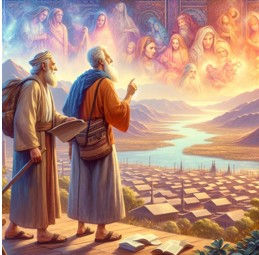Strategy Update: Rongo - Peace
- May 29, 2025
- 2 min read
In a world of noise, it is easy to listen past each other. In a world full of tribalism, it is easy to be divided. In a world of individualism, it is easy to forget the importance of community. Eugene Peterson defined the New Testament word for "world" as the dominant culture we breathe in. It has a way of moulding us, shaping us, and sometimes bending us out of shape. We are so immersed in it, we fail to see how much we are being formed by it, and if we pause and reflect sometimes, we have to face that we don't like who we are 'becoming'; critical, harsh, hard, uncaring, angry and so on.
The gospel story invites us to live as an alternative community rather than embrace the dominant culture around us, to step back from the noise and follow the God of peace, the Prince of Peace. The peace of Christ offers a radically different way of being. Rongo is not merely the absence of conflict, but the presence of deep reconciliation—within us, with others, and with God. Jesus said, “Blessed are the peacemakers, for they will be called children of God.” Peace-making isn’t passive; it’s courageous, intentional, and often uncomfortable. It involves listening generously, extending grace, offering forgiveness, and seeking to understand the other. It's easier sometimes to pray for peace in the Middle East rather than to address the prejudice, hatred, offence, and anger in our hearts.
As we seek to be disciples, followers of the way, how can we live more as children of rongo?
Some reflective questions to ponder:
Are there any attitudes I hold or behaviours I act out of that destroy rongo?
How might I be a peacemaker (@ church, @ home, @ work)?
Who might I need to let off the hook?
O God of many names,
lover of all peoples;
we pray for peace
in our hearts and homes,
in our nations and our world;
the peace of your will,
the peace of our need.
Amen.




Comments